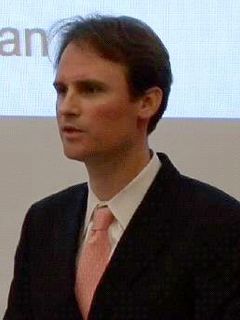A Quote by Donalyn Miller
A classroom atmosphere that promotes reading does not come from the furniture and its placement as much as it comes from the teacher's expectation that students will read.
Related Quotes
If we are always reading aloud something that is more difficult than children can read themselves then when they come to that book later, or books like that, they will be able to read them - which is why even a fifth grade teacher, even a tenth grade teacher, should still be reading to children aloud. There is always something that is too intractable for kids to read on their own.
The main difference in the effectiveness of teaching comes from the thoughts the teacher has had during the entire time of his or her existence and brings into the classroom. A teacher concerned with developing humans affects the students quite differently from a teacher who never thinks about such things.
I strive to view my students as unique human beings all of whom come to my classroom with a personal history, cultural perceptions and traditions, goals and aspirations as well as fears and insecurities. By employing the principles of Personalization, I am able to connect with my students in a genuine way in order to build trust, respect and rapport in the classroom.
By believing that only some of our students will ever develop a love of books and reading, we ignore those who do not fall into books and reading on their own. We renege on our responsibility to teach students how to become self-actualized readers. We are selling our students short by believing that reading is a talent and that lifelong reading behaviors cannot be taught.
I was born 50 years after slavery, in 1913. I was allowed to read. My mother, who was a teacher, taught me when I was a very young child. The first school I attended was a small building that went from first to sixth grade. There was one teacher for all of the students. There could be anywhere from 50 to 60 students of all different ages.





























